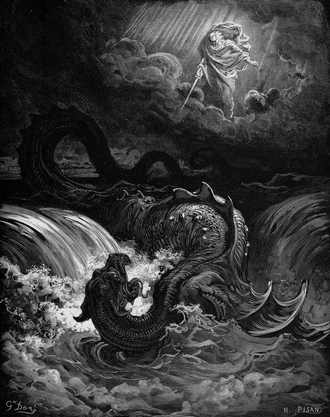
Leviathan
Gematria Values
Leviathan is a primordial sea creature referenced in the Hebrew Bible, specifically in the Book of Job, Psalms, and Isaiah. The term Leviathan is derived from the Hebrew word לִוְיָתָן (Livyatan), which is often translated as "twisted, coiled." In the Bible, Leviathan is depicted as a monstrous creature, often symbolizing chaos and evil, and is sometimes associated with the sea and its untamed power. In later Jewish tradition, Leviathan is also associated with the messianic era, where it is said to be slain and its flesh distributed to the righteous. The concept of Leviathan has been adopted and reinterpreted in various cultures and religious traditions, including Christianity, Islam, and modern literature. In English literature, Leviathan is famously referenced in John Milton's Paradise Lost and Thomas Hobbes' political treatise Leviathan, where it symbolizes the state's absolute power. In Arabic, Leviathan is known as اللياثون (al-Li'athun), and in Greek, it is referred to as Λευιάθαν (Leviathan).
Wikipedia Information
